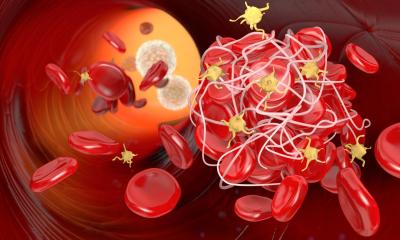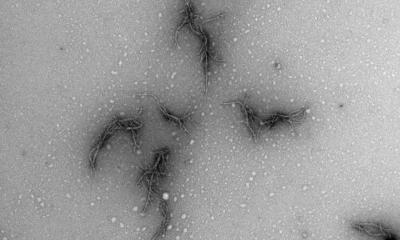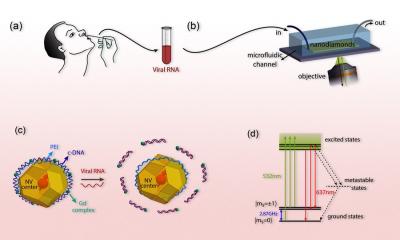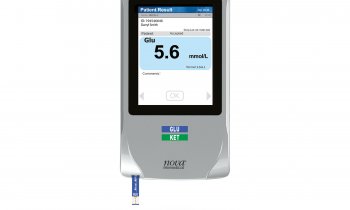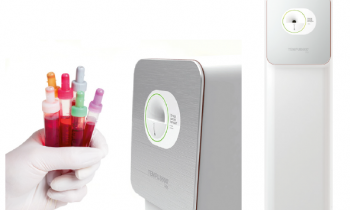AACC News
Rapid Ebola test could help end lingering outbreak
Research presented at the 2015 AACC Annual Meeting & Clinical Lab Expo will expand on the studies that led to a fingerprick Ebola test becoming the first and only rapid diagnostic for this disease to receive approval from the World Health Organization (WHO). This test could prove vital to breaking Ebola’s grip on West Africa by identifying suspected Ebola cases within minutes, and enabling healthcare workers to isolate and treat these patients much faster than is currently possible.
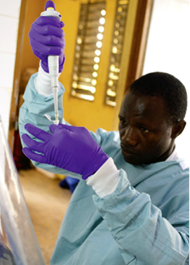
More than 11,000 people have died since the Ebola epidemic began in March 2014, and though cases have been declining, the international emergency response that the outbreak prompted has not been able to drive the virus back underground. The fight against the disease achieved a significant victory in May, when Liberia—one of the nations hardest hit by the virus—was declared Ebola-free by WHO. Less than 2 months after this win, however, new cases of the disease were discovered in the country. The first of these was a 17-year-old boy who was misdiagnosed with malaria and who, before passing away, came into contact with at least 102 people who may have caught the disease from him. This case tragically illustrates the need for a fast way to accurately identify Ebola cases so that patients get the care they need and transmission can be halted.
The Viral Hemorrhagic Fever Consortium, which is led by Tulane University and the diagnostic company Corgenix, has developed such a rapid test for Ebola. Called the ReEBOV Antigen Rapid Test Kit, this test uses a few drops of blood and the same technology used in at-home pregnancy tests to provide results in 15 minutes. In comparison, the current gold standard test for Ebola, qRT-PCR, can take up to a day to return a diagnosis.
Matt Boisen, Program Director of Infectious Diseases and Emerging Technologies at Corgenix and Development Director of In Vitro Diagnostics at the Viral Hemorrhagic Fever Consortium, will present the findings of two studies by WHO and Corgenix, respectively, demonstrating ReEBOV’s efficacy at the 2015 AACC Annual Meeting. The WHO study, conducted in Ebola-hotspot Sierra Leone, compares ReEBOV’s performance with that of qRT-PCR. By testing 292 stored patient samples with both methods, researchers found that ReEBOV performed nearly as well as the gold standard, and agreed with qRT-PCR on 91.8% of infected samples and 84.6% of non-infected samples. ReEBOV’s accuracy was also recently confirmed by a third separate study published in The Lancet. This means that ReEBOV could be used as a complement to qRT-PCR, enabling healthcare workers to act immediately on potential Ebola cases without having to wait for the qRT-PCR results to come in.
“All three studies—our internal emergency use authorization study, the WHO study, and The Lancet paper—show that the rapid test can provide a plus 90 percent accuracy when paired with the PCR test,” said Boisen. “This really establishes that the rapid test can be used as a triage method to quickly provide patient results that can later be confirmed by PCR. This represents a breakthrough in the detection of Ebola for this and future Ebola virus outbreaks.”
Source: AACC
28.07.2015



